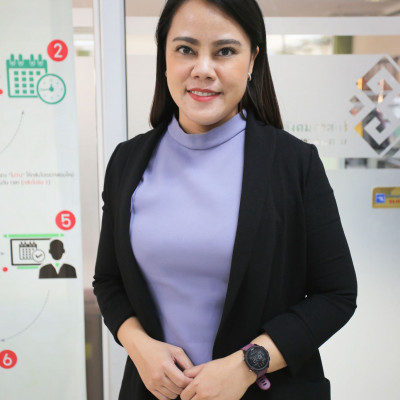Sessions / University
Activating Language Communication Classes through Extensive Reading Channels in a Pandemic Hybrid Setting #1555
In its second phase of implementation, in a pandemonium set up that can even curtail teachers' and students' motivation, ER, being adaptable, thrives and can support the primary curriculum to engage learners in language communication activities. Are you new to ER or contemplating implementing it? Then come and join!
Active Learning in an Online Setting Utilizing Extensive Reading and Digital Storytelling #1588
In this paper, a classroom practice is reported in which extensive reading was combined with digital storytelling. It was conducted in an EFL reading class at a national university in Japan. The objective was to provide learners with an opportunity of extensive reading, story analysis, and active learning.
Learner Audio Use in a Large Extensive Reading Program #1599
Learners in a large extensive reading program at a Japanese university using Xreading had access to audio recordings for each book. Presenters will report on why some learners chose to listen and will characterize the methods learners used to do so. Data from surveys and interviews will also be shared.
A Task Based Approach to Creating Effective Reading Circle Activities #1544
This presentation will give the results of the instructor’s experience designing tasks for Reading Circles built on multiple copies of the same set of Graded Readers in a modified ER-based program. The presentation will explore a number of activities including reports that target vocabulary acquisition and integrate online digital tools
Transitioning a University Extensive Reading Program from Print to Digital Books: M-Reader to Xreading #1575
This paper reports on the transition from physical to digital books in a university-wide extensive reading program in Japan. Not only will students’ learning outcomes and responses to their online reading experiences be shared, but comparisons of the two learning environments will also be offered: paper-based reading and screen-based reading.
ER and Reading Targets - An Investigation into the Rationale behind Teachers’ Choices #1581
Deciding reading targets is often an important aspect of planning an ER program. However, little is known regarding teachers’ rationale behind those choices. In this presentation, the authors will attempt to shed light on those reasons based on the results of a qualitative study.
Cancelled Reading novel Assessment: An Initial Study in Implementing Critical Thinking Skills in an Extensive Reading Program Assessment #1549
This presentation will show the result of the study of implementing CT skill in novel reading assessment and how it can be helpful to reduce cheating probability
Atheists, agnostics and true believers: what instructors in a university extensive reading programme believe about about extensive reading #1686
In this presentation I discuss what instructors involved in an extenisve reading programme believe about extensive reading. While much of the literature on extensive reading argues for the benefits of extensive reading (for example improved reading fluency, vocabulary acquisition and increased cultural knowledge), what instructors believe about the value of extensive reading may differ in several ways from this. Utilizing data taken from a focus group with six instructors who teach in a Freshman English course at a private university in central Taiwan that includes extensive reading as a programme component, findings reveal that teachers bring to bear a wide variety of beliefs regarding extensive reading; these include what I term 'atheism' (a lack of belief in the approach), 'agnosticism' (doubts about the efficacy of extensive reading) and 'true belief' (an acceptance that extensive reading is of benefit to L2 acquisition). Analysis of the data shows that such teacher beliefs are informed by previous experiences as an L2 reader, prior experience teaching reading and beliefs about the reading habits of students. This presentation makes the case that extensive reading programmes should allow instructors to adopt a variety of approaches to implementing extensive reading that are in keeping with individual teacher beliefs.
Cancelled Finding Common Ground in Extensive Reading Between World Literatures and Local Stories: English and Multilingualism #1550
In the context of a South African university there is a need to find a balance between world literature and local stories in order to help students to achieve success in their extensive reading.
Japanese University Students’ Attitudes Towards Extensive Reading in the Digital Age #1572
With the ubiquitous use of digital devices, it would seem that a technological solution to ER may be just as beneficial as a paper-based approach. Hence, this mixed-methods research project looks at how first-year Japanese EFL university students experienced a yearlong, technologically-assisted extensive reading curriculum in terms of their reading attitudes.
An Investigation of EFL Students' Perceptions of their Extensive Reading and Flow Experience #1560
This study investigated the students’ perception of their extensive reading and flow experience (FE) including conditions that enabled FE.
Setting Extensive Reading Goals to Achieve Reading Rate Gains #1590
Beglar and Hunt (2014) suggested that completing the equivalent of 7,200 standard words of extensive reading per week will facilitate substantial reading rate gains. The goal of this study was to investigate the feasibility of such a goal for learners of Japanese. Results, pedagogical implications, and suggestions will be discussed.
Developing Reader Identity Through Xreading: A Case Study of EFL University Students’ Perceptions #1589
This presentation addresses how Indonesian university students perceived themselves developing their reader identity through xreading and its follow-up activities. The presentation uses the perspective of literacy as social practice. Preliminary data from survey indicates that students' constructions of reading and being a reader have evolved throughout the online extensive reading.
A Study on the Practice of Extensive Reading for EFL Early Childhood Education Majors in Japan amid the COVID-19 Pandemic #1578
This paper aims to report findings of a survey of English language teaching including extensive reading for early childhood education university students in Japan amid the COVID-19 pandemic. The findings are based on the identified correlations between online and face-to-face instruction modes in the teaching.
Japanese Extensive Reading: Aesthetic and Efferent Engagement of Learners with Texts #1573
Grammar translation teaching styles in Japanese courses influence Japanese learners to conceive of reading as translating the propositional content of texts. However when reading extensively, learners may adopt different reading styles and patterns of behaviour, indicating that ER can enable students to develop more natural, normal ways of reading.
Students’ Learning Experiences in Using Xreading Books and Audios #1591
This study depicts the learning experience of students of an Indonesian university in using the books and audios available in Xreading as well as finds out whether the students use the books and audios to conduct reading only (RO) and reading while listening (RWL).
Incorporating Extensive Reading in an English Program at the OFM Postulants Community Yogyakarta #1600
This presentation will describe the process of incorporating extensive reading in a community of Catholic men. It will elaborate how the program ran as well as how the students reacted to the program.
The Experience of a Newcomer: Extensive Reading Program Setup – From Zero to 5,000 Readers #1574
In Thailand, implementing an extensive reading program at a university level is relatively new, especially with an online library integration. This presentation focuses on the extensive reading program implementation using the Xreading virtual library at a large public university in Bangkok. The steps taken, the challenges faced, and the lessons learned will be discussed.
X-Reading: The Potential of Integrating Extensive Reading and Students’ Critical Thinking #1604
This paper intends to identify the correlation between ER and students’ critical thinking. The participants of this research are the first-year students of English Education study program in Universitas Negeri Surabaya who take part in ER program. The ER program implemented for students is X-Reading, an online extensive reading website with learning management system (LMS) that provides hundreds of graded readers. The data are collected from the recorded time spent by students on X-reading activities and questionnaires based on students’ perception on how extensive reading contributes to their critical thinking skill. The data are analyzed using Product Moment formula and Coefficient Determination to find out to which extent X-Reading contributes to students’ critical thinking skill.
Cancelled Promoting Freshmen's Learner Autonomy Through Xreading Program in Higher Education #1601
Extensive reading has been proven to have positive effects in improving students’ skills and learner autonomy. Therefore, English department of Universitas Negeri Surabaya continuously conducts ER for freshmen to develop their learning autonomy through X-Reading. It is online-based extensive reading using technology. It shows X-Reading can foster students’ learner autonomy.
Cancelled Japanese University Students' Reactions to Using an Online Extensive Reading System #1595
This research explored the usage and reactions of 34 second-year Japanese university students enrolled in elective English courses to using the Xreading extensive reading virtual library, quiz and tracking system. Data was collected via an online survey, including Likert-scale and open-ended items, and via the Xreading learning management system.
The application of the Coverage Comprehension Model #1551
The Coverage Comprehension Model (CCM) describes how learners who know >95-98% or more of the tokens within a text are likely to comprehend it. This presentation explains how the operationalization of the CCM is based on four assumptions that research suggests are incorrect. Teachers and researchers will benefit from understanding this.
Using Non-Fiction Books to Facilitate L2 English Acquisition, Peer Collaboration, and Content Learning #1568
This presentation will explain how reading a non-fiction book together as a class can serve as a bridge between Intensive Reading (IR) and Extensive Reading (ER) that facilitates both acquisition and collaboration. The presenter will share strategies for selecting books, managing a reading project, and incorporating language learning activities.
Implementing an Extensive Reading Program in Settlement Language Training Courses: Challenges and Solutions #1608
In this session, the presenter will explore possible reasons why ER has been overlooked in the settlement language training sector in Canada, and suggest ways to remove obstacles and incorporate a program that is both practical and relevant to stakeholders, instructors and learners.
Talking past each other: Chinese EFL teachers’ understanding of Extensive Reading #1540
This presentation reports on findings from an investigation into twenty-four Chinese EFL teachers’ understanding of Extensive Reading (ER). Despite their positive attitude toward ER, results revealed that these teachers’ definition of ER was different from that of researchers in the field of ER.
The Impact of Online Extracurricular Extensive Reading Activities on Indonesian University Students’ Reading Habits and Attitudes #1584
Through a RELO U.S. Embassy Jakarta program, Rachel S. Wang conducted extracurricular synchronous online extensive reading activities with Indonesian university students. She read books aloud, designed creative tasks, and had students create their own picture books. Survey data shows students’ reading habits and attitudes improved after completing these online activities.
What ER brings out in us: a comparative study of two Thai universities #1660
The study aims to investigate whether extensive reading (ER) can promote university students’ English reading motivation and foster positive attitude towards reading in English. It further explores the teachers’ perceptions of and the challenges faced in the implementation of ER activities. An ER program was held for eight weeks at two public universities in Thailand. Teacher’s observation and student’s log were applied to collect some insightful data. After the ER program ended, focus group interview were conducted with some students randomly and six lecturers from the participating schools who were involved in the ER program. The majority of the students from both institutions expressed positive attitudes towards the ER program. However, students with different knowledge levels of English expressed diverse opinions regarding ER practice and expectation towards English test achievement. While most of the lecturers realized the usefulness of ER, some of them were still worried about the time consuming and extra workload. Although the reflection on ER was varied in some aspects, there was a consensus about the benefits of ER in promoting English language learning among learners and teachers. Therefore, the study suggested to some degree the plausibility of implementing ER in the country like Thailand where ER is not well known.
Leading into Extensive Reading through Storytelling #1593
The presentation aims to recount how reluctant readers in a UAE higher education institution were lead into extensive reading (ER) through an online storytelling activity where students read graded readers aloud whilst recording themselves in a Zoom meeting. This was then shared on a Microsoft Stream channel for viewing outside the classroom. The project was devised to foster language and social entrepreneurial skills as well as motivating students to read extensively.
Cancelled Extensive Reading in L2: Potential of Using LARA Assisted Reading Platform for Increasing Incidental Vocabulary Acquisition #1557
The paper provides an overview of a unique on-line open source e-reading platform, LARA, and offers an insight into the early user feedback on their reading experience.
Cancelled The Road to Extensive Reading: Preparing Students for Online ER #1537
In the three-hour workshop (or long paper), first, participants will understand why ER was a meaningful solution in Kurdistan (Iraq). Next, they will use tools to assess what level of reading text students need. Third, they will compare four online ER sites for training students to choose non-fiction texts. Finally they’ll make an ER plan for feedback.




































